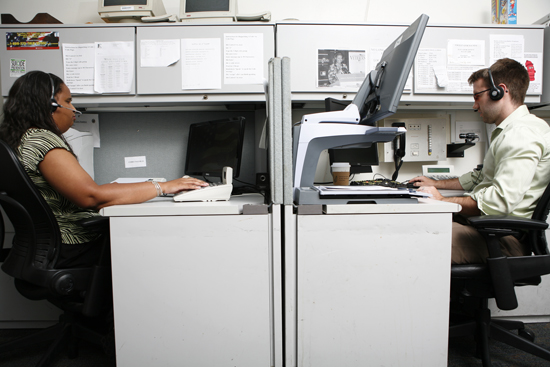Wall Street Journal Story Sheds Light on Common Issue for Job Seekers with Vision Loss
March 18, 2013
The Wall Street Journal recently ran a story titled "When It Comes to Hiring, Blind Workers Face Bias." It examines a study conducted by our friends at the National Industries for the Blind, and the many misconceptions employers (and hiring and HR managers) have when it comes to hiring potential employees with vision loss.
They are just that—misconceptions. NIB's president and chief executive, Kevin Lynch, had a few interesting things to say on the matter, and I agree wholeheartedly.
The fact is, most employers and their gatekeepers are not educated on working with individuals who are blind or visually impaired. Every day, people with vision loss seeking work face these vast generalizations and misconceptions. And unfortunately, the majority of the public does not know about the abilities of persons who are blind or visually impaired. Many people find themselves in awe when a person who is blind or visually impaired can do something as simple as cook a meal, cross a street, or dress themselves. We as a community have to do a better job of enlightening employers about the competencies of people who are blind or visually impaired. Truth be told, the majority of persons who are legally blind need very little accommodations on the job besides accessible technology such as a screen reading software or screen magnification software, which range in cost from free to $1200 depending on the software option. The majority of people with vision loss are with low vision, meaning that have some usable vision.
People who are blind or visually impaired are working in nearly every career field — almost anything not involving driving. People who are blind or visually impaired typically work longer hours and stay in a position longer. We as a population need to address these misconceptions held by the gatekeepers of businesses and corporations. Employed persons who are blind or visually impaired should be appalled by some of the findings of this study.
As a professional who is visually impaired, I am truly upset by many of these findings, and I applaud NIB's Kevin Lynch for addressing this information.
The American Foundation for the Blind's CareerConnect program highlights stories about successful people who are blind or visually impaired from around the United States and the World. There are CareerConnect Mentors employed in over 372 different career fields. Persons who are blind or visually impaired are found as mechanics, carpenters, computer programmers, lawyers, accountants, teachers, sales professionals, and a lot more fields. CareerConnect is part of the AFB family of websites, offering career exploration resources, articles, advice, mentoring, and an employment process course. All of this can be found on CareerConnect for free!
Thank you again to NIB and Kevin Lynch for setting the record straight!
